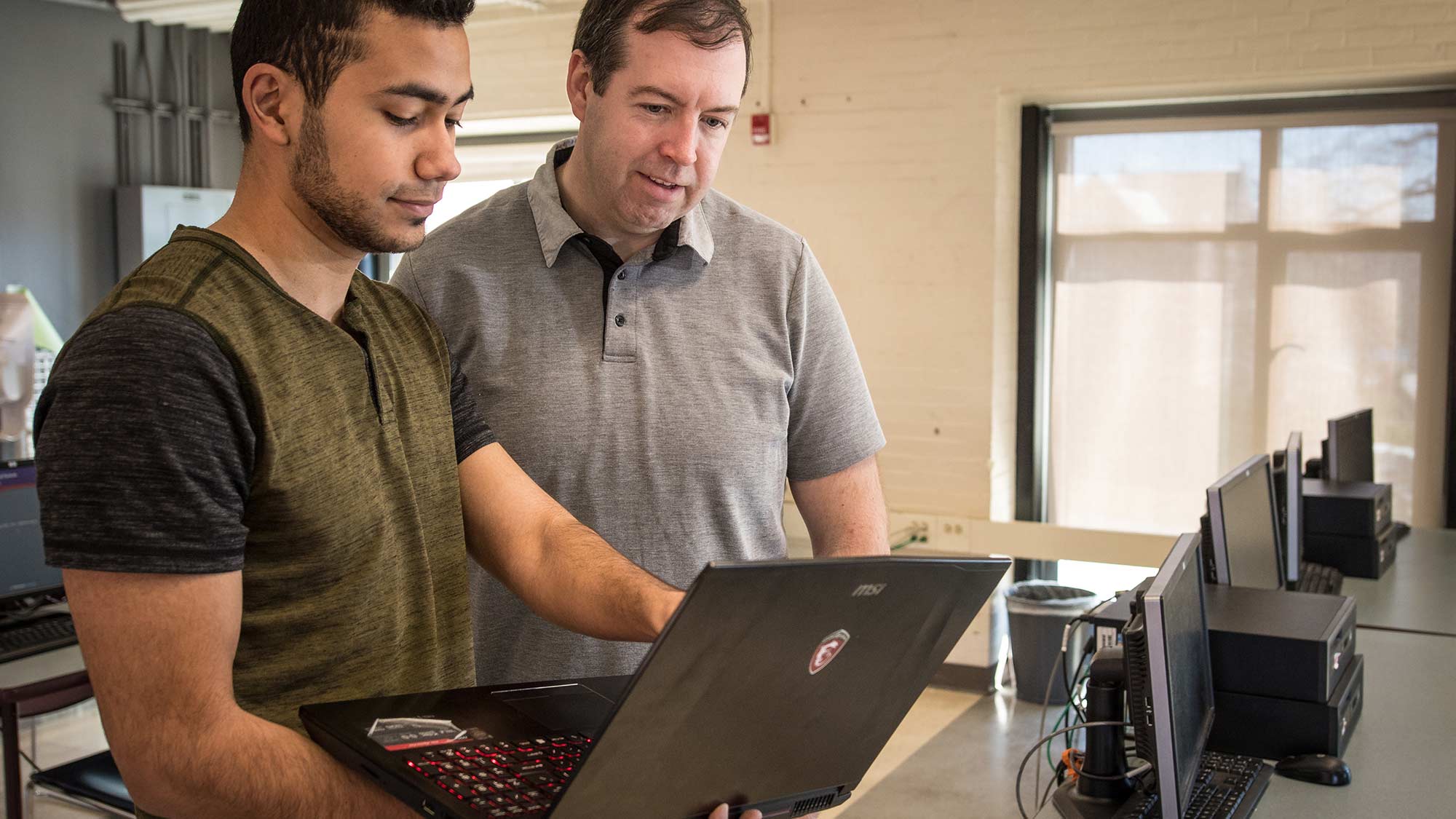Computer Science Professor John Magee is interested in learning how systems can improve people’s lives. Magee works with user interface technologies that allow people with disabilities to communicate and participate in the world.

Using technology to solve problems and improve lives
“The neat thing about computer science is it’s all about helping people solve problems or do things,” Magee says. “Sometimes those problems are in computing, but very often they’re problems that face scientists in other fields.”
His passion for helping others through technology started when he was an undergraduate student assisting on a project that helps people use a computer mouse without the use of their hands. Instead of pointing and clicking with their finger, Magee can coordinate computer systems so that blinking, for example, controls a computer mouse click.
“That was the moment where I first really saw the human side of computing and the difference that it can make for people,” he says.
Today, Magee’s area of research—computer vision, AI, and machine learning—dominates the computer science field. And as interim provost for Clark, he is guiding faculty and students as they adjust to technological advances like ChatGPT and other artificial intelligence tools.
There is still room for the human, however, he says. As faculty integrate AI and other technological advances in the classroom, he asks, “What can students do that can be possibly augmented by those tools, not replaced by the tools? How do we ensure that students can still analyze a piece of literature or create art or describe what art is?
“You can still pose an intellectual problem as a human, and if you figure out how to use a particular tool, it might allow you to be more effective in solving that problem,” Magee says. “Computer scientists recognize that the most interesting problems are not computational but societal. Understanding the world’s problems from a humanities perspective is vitally important.”

